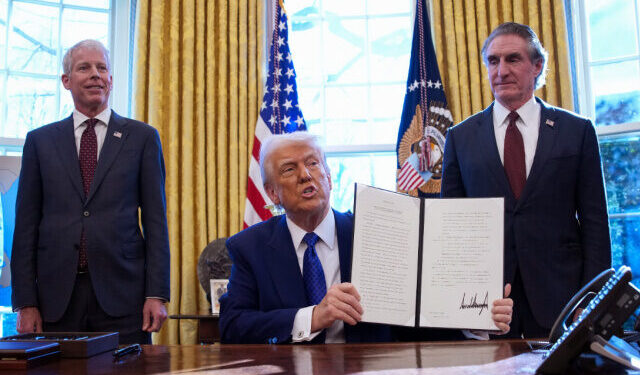Imagine sitting on a goldmine but not being able to use it. That’s how some energy experts have described America’s untapped resources for years. But on Friday, former President Donald Trump signed an executive order aimed at changing that—officially launching the National Energy Dominance Council.
The goal? To make the U.S. a global energy powerhouse by cutting red tape, speeding up permits, and encouraging private investment. Doug Burgum, Secretary of the Interior, will chair the council, with Energy Secretary Chris Wright as his right-hand man. The council includes other key government officials, all tasked with figuring out how to unlock America’s full energy potential.
What’s the Plan?
The council will focus on:
✅ Faster energy production – cutting down on long approval processes
✅ More private investment – making energy development more business-friendly
✅ Lower energy costs – reducing regulatory expenses and passing the savings to consumers
✅ Boosting domestic energy – increasing production across oil, gas, nuclear, and renewables
Burgum called the order “a 180-degree turn” from the previous administration’s approach to energy. “The Biden administration had a war against American energy,” he said. “Now we need to unleash that potential from the Gulf of Mexico all the way up to Alaska.”
Why Does It Matter?
The U.S. has some of the largest untapped energy reserves in the world, much of which sits on public lands or offshore territories. Burgum pointed out that the Department of the Interior controls over 500 million acres of land and nearly 2 billion acres offshore—resources he says have been “completely underutilized.”
Energy Secretary Chris Wright emphasized that the order empowers officials to break down barriers that have slowed energy projects for years. “With this action, we finally have the authority to fix these problems across the government,” he said.
This wasn’t the only executive order Trump signed that day. He also issued a ban on federal funding for schools that require COVID-19 vaccinations, a move reported earlier by Breitbart News.
What’s Next?
While supporters see this as a game-changer for energy independence, critics argue it could lead to environmental risks and weaken climate policies. One thing is clear: America’s energy strategy just took a major shift, and it’s one that could impact everything from gas prices to job creation in the energy sector.
Do you think this move will lower energy costs and boost the economy, or does it risk putting profits over the environment? Let’s discuss! 🚀




















